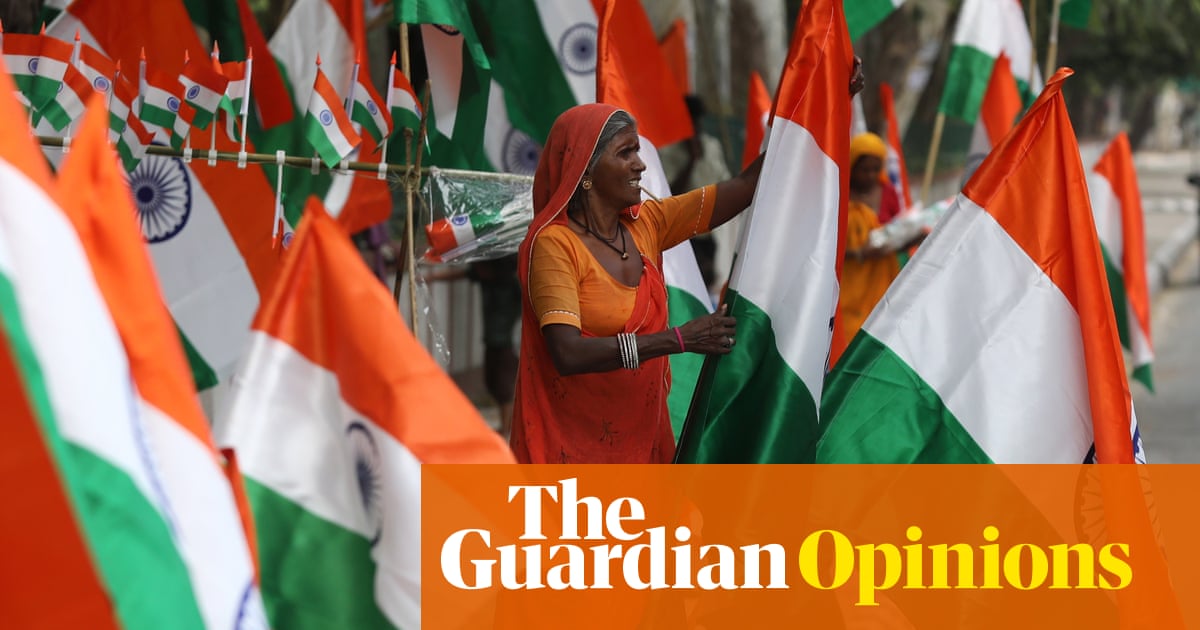
For many Indians, 15 August is a day of celebration but for some, it’s a reminder of the atrocities that were committed during the lead-up to the “stroke of midnight”. I’m one of them. My father was not even 12 when he saw a brutal murder in his village in the north-east district of Jalandhar.
It was late 1946, only a few months before India was to gain independence. People – Hindus and Muslims – had got wind of Lord Mountbatten’s plans to partition the country. The two-nation theory that had been a rallying call for Indian Muslims such as Muhammad Ali Jinnah was now becoming an inevitable reality.
As a consequence, about 14 million Hindus, Sikhs and Muslims uprooted themselves, abandoning their homes and journeying across the border – the demarcation line that Cyril Radcliffe had drawn across the Punjab, without – it seemed to Indian and Pakistani critics at least – much care for the communal complexity of the area.
People walked or, in the case of the infirm and elderly, were carried on carts pulled by bullocks. They went in rows guarded by military personnel from both sides. On the way, along with the onslaught of hunger, starvation and disease, sporadic violence and bloodshed took place on an unprecedented scale. On each side of the sectarian divide, there were reports of rape, kidnapping of teenage girls, looting, pillaging and killings.
My grandparents lived in an old Muslim-named village, Rahimpur. One late autumn evening, the village thugs – masquerading as nationalists – called out to young men to help them remove Muslims. They wanted to create mob hysteria, to intimidate anyone who was refusing to leave. However, politics or separatism were never the concerns of my father. Neither he nor my grandfather were Hindu nationalists.
My grandfather pleaded with the ringleaders, arguing that my father was too young to join such a crowd – he was barely in double figures. But the men insisted by making tacit threats to my grandfather, forcing him to toe the line. Fearful for the safety of his own family, my grandfather let my father go.
The mob was led by one or two men carrying paraffin lanterns to light the way in the dark. They stamped their way to the fields where a Muslim was refusing to leave the village, his home. Within a few minutes, the mob got to the man’s house; he looked stunned as he opened the door. He was about 40, unkempt and shrivelled. He was holding a light of his own and a stick. A few days ago, he had seen his family off to safety in what became known as Pakistan. But he himself refused to leave his house, his land, his property. My father says he remembers him arguing with the mob that was standing with sticks, machetes and swords.
There was a cacophonous sound of shouting intermingled with obscenities. But the man had a certain air of defiance, something close to admirable and heroic. Soon the commotion grew in urgency and intensity, while anger changed to rage. Other men joined in the ruckus, waving their weapons. My father said he wasn’t sure if they were merely scared of being seen as cowards or whether they got swept up in the heat of the moment. And all of a sudden – with little warning – a Sikh man who had fought in the British army, unsheathed his sword and swung it.
What followed was a scene to penetrate into the darkest reaches of my father’s conscience, to haunt him for the rest of his life: clear and vivid to him in all his waking hours, during all the pauses in the day, during those gaps between sleep and wakefulness.
Like most men of his generation, my father kept his internal dialogue to himself. He would never speak of that evening until I started writing my family history a few years before his death. He would recount the episode slowly, in short outbursts, and then he’d fall silent for a further few weeks. He would never be probed or prompted. He would only reveal the horror in his own time.
Implicitly, his narration would touch on matters of guilt, redemption, forgiveness. He would scrutinise and question his own role that evening – prompting a multitude of questions for me, his son.
The universe will judge the actions of the Sikh man, but how much of the shared – or collective – responsibility can be attributed to my father, or my grandfather who let my father go with the mob? Is it possible to exonerate both men on the grounds of ignorance or fear? Can a child be held responsible for atrocities he may have committed? What if he was a mere bystander of a tragedy, observing from the back of a crowd? Can you cleanse yourself of witnessing such a sin? And if so, how do you atone?
As Indians mark this year’s independence day, I’ll be thinking of that Muslim man and the countless similar incidents of inhumanity witnessed by the “midnight’s children” caught up in the tragedy. At the stroke of midnight, India may have woken up to freedom that marked its rebirth and the end of its political subjugation to Great Britain, but many of India’s subjects will remain shackled to the nightmare that they replay even to this day.
Roshan Doug is an academic and the former poet laureate of Birmingham












